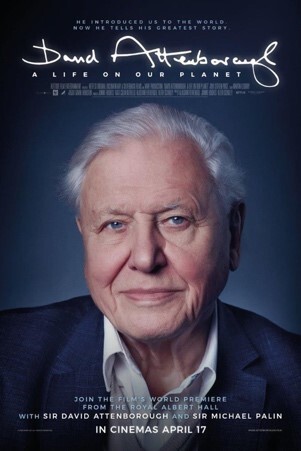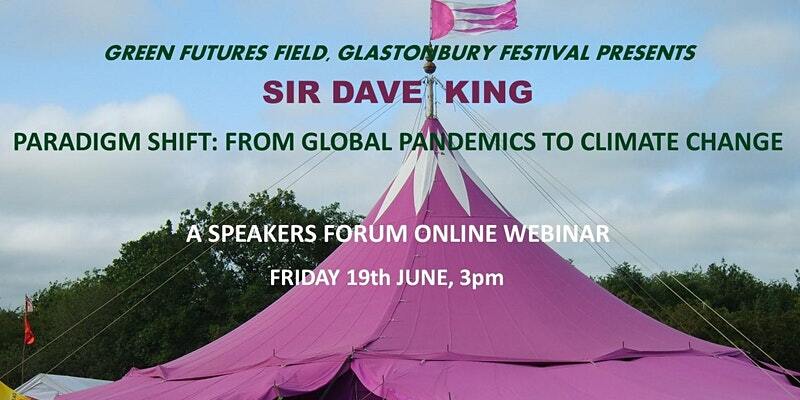To KEF members aand potential members
Keeping in touch
This is another go at refreshing and expanding the KEF contact list, as recent communications via the KEF website have not received responses and may well be obsolete, or going to the wrong person in your organisation, or disappearing into a spam folder.
Though KEF has been inactive for a couple of years we have been included in the Council's Covid Recovery Taskforce (Communities), and this seems an opportunity too good to let pass. But I would appreciate help and input from member-groups so that I can better represent the local green community and your group can contribute and be consulted as and when needed. Together we can help Kingston recover from this crisis in a more sustainable, greener way.
Below is the first questionnaire that the Taskforce has sent me, and if you have any thoughts on it do please let me know:
Strengths: What has gone well?
Development: What are you worried about?
Planning: What needs to be sustained, changed, delivered differently or started?
This may be the first of many opportunities for a joined-up voice for local environmental groups (for example I’ve just been asked to speak in a Richmond and Kingston Greenpeace Zoom discussion on the future of transport in our boroughs and the opportunity for a green recovery), so please do consider signing up or checking that you are still members of the KEF website and/or that someone interested will pick up messages sent from the eVoice website. Just click the Join Website button at the top of the KEF Home page. However, I think I will usually try to contact you via an email address, if you can send me the best one to communicate with.
If you are new to KEF and its resources, do please have a look at KEF’s website, and KEF Facebook group, where we share updates and concerns of general environmental interest - there may be a question or issue for you to take up.
Kingston Friends [of parks, green spaces, allotments...] Forum?
It would be very useful to have one or two umbrella groups that could speak on behalf Kingston’s green spaces. People have tried before to get the various local Friends of ... groups to come together with no success, but maybe now would be a good time to try again? It would certainly be helpful to KEF, as consulting individual park and allotment groups is beyond my capacity, and I know that the London Friends of Parks and Green Spaces would also rather deal with one Forum per London borough than with scores of individual park groups.
Host a community screening of David Attenborough’s new film A Life on Our Planet, FREE
WWF is offering community groups free digital screenings of the recently released David Attenborough film A Life on Our Planet, an opportunity to reach a wide audience (safely on-line) with an important message about biodiversity loss and the climate crisis from a popular figure. Community groups can find everything they need for free educational screenings – Ts and Cs, guidance through the process, discussion and publicity resources – at https://attenboroughfilm.com/screenings/.
Transition Town Kingston is screening it twice on Thursday 29th October at 7pm and Sunday 1st November at 4pm, but if you are a member of an educational establishment or any other group that could reach out beyond the usual suspects, do please try to persuade them to show it too.
Marilyn Mason, former Chair, current Coordinator
A poem for our times by Tariq Shabbeer, June 18th 2020
By the light of the dawning sun,
That lost its veil,
To the Eastern skies,
When the bees are busy,
And the winds and rains subside.
By the morning chorus which drowns,
Lockdown night's silence,
There's more to be explained,
That's known by science.
Twelve weeks plus in isolation,
Was not as much a desolation,
When neighbours, friends and Council too,
Helped us cope and make do.
The world may burn and pillage,
But we are first, a ‘global village’.
It didn’t matter,
If you were black or white,
The virus didn’t care,
If you were left or right,
All united in the fight,
With our glorious NHS,
As our guiding light.
Korean, Arab, Turk or Greek,
A healthy world is all we seek.
For those who'll leave and travel far,
Don’t forget just who you are,
And as the twilight creeps into the West,
I know I’m living with the best,
Most kind, most generous, generally,
We all live here, happily.
So no matter where I roam,
I will never be, lost or alone,
And as the setting sun hangs low,
I’ll remember and I’ll know,
That Kingston,
And England,
Is my home.
Tags:
A personal view by Marilyn Mason, June 2020
One of the great pleasures of working and living in a large city is the opportunity to participate in talks and discussions on a huge range of themes, often featuring world-class speakers and experts. Over several decades I’ve enjoyed lectures and conferences on Darwinism, statistics, economics, climate change, happiness, mindfulness, philosophy, social liberalism, faith schools, politics, the media, food, books... Often these take place in the early evening after work, maybe followed by a glass of wine and some interesting conversation or a book signing... a stimulating end to the day. One disadvantage of retiring was having to choose between the more limited selection of discussions available in a London suburb or making a rush-hour journey to central London.
Lockdown looked as though it would put an end to all that, but the pause in my education did not last long as almost all the organisers of talks and events went on-line, with the How To Academy, The Guardian, New Scientist, 5 x 15 and many more rapidly changing the way they worked to provide plenty of excellent discussions with speakers and participants from around the globe. Those of us who'd never heard of Zoom a few months ago suddenly became adept and extremely busy users.
The advantages are many, both to us as audience and to the organisers. For us: no time-consuming travel at inconvenient times – instead an hour or two of inspiring talk fitting easily between supper and catching up with TV and sleep (or possibly even while eating supper); probably a bit less alcohol as we don’t usually gaze at our screens or network over drinks after Zoom lectures; we get fascinating glimpses of famous people’s rooms and bookshelves; these events are much cheaper, usually offered free or for relatively small donations; and we don't have to dress up or even put on shoes to go along. For the organisers: no need to hire a huge hall or pay travel expenses to speakers, so that events that might once have been difficult and expensive now probably make a tidy profit; for the speakers, there’s no need to leave their cosy studies for the dubious pleasures of long-distance travel, a night in a hotel and addressing an unknown audience.
There are disadvantages of course. Audiences miss out on serendipitous conversations over drinks and maybe even opportunities to talk in person to famous speakers; there are sometimes technical hitches and events can get off to an infuriatingly slow start while participants find their way into virtual meetings and fiddle with their mics and connections (though this is improving with time and experience); Zoom’s free meetings are too short for some purposes and stop unceremoniously after 40 minutes (though there are ways round this); there are just too many tempting events – I reckon I could attend one or two almost every day – and some groups have actually increased the number of their meetings during the lockdown just because they can, not because more meetings are needed; less confident or less well connected internet users are excluded from this wealth of information and discussion. Chairs and speakers find themselves received in silence by a muted audience, which must be particularly disconcerting when they say something funny or controversial; proceedings and Q&As have to be quite formal and orderly, which can be time-consuming (but so is a helper wandering round a large hall with a mic trying to find the audience member that the chair pointed at); there’s less opportunity to sell books... And whatever the merits of Zoom et al for webinars, they are less suited to informal chat or singing in choirs, and most people will still want to socialise and sing in the real world.
Will we go back to the old ways? Perhaps not, as the advantages are clear to anyone who has ever organised speaker events, and I can testify to the difficulties. Should you book the room or the speaker(s) first, and what if there’s no date that suits all of them? How big a room should you hire – an empty large hall is expensive and embarrassing but too small a room might exclude some participants and limit ticket sales? Will the event cover its costs? What do you do with the speaker afterwards – dinner might seem like a nice thankyou gesture, but s/he might just be dying to get home? And for audiences too, the convenience might well outweigh the disadvantages, and perhaps as the novelty wears off and we all get used to this new normal, things will settle down and there will be fewer and better events jostling for our time and attention.
What lessons are there in all this for smaller community and environmental groups? Lectures and discussions on-line are much less risky financially – the costs are low, so attracting a large audience matters less though the convenience to most of our potential audience might in fact mean that we reach more people than usual. We could perhaps occasionally host nationally or internationally renowned speakers – even the most famous people are happy to talk to an audience when they have a book or an idea to promote. Our usual raffles and such-like fund-raisers might become difficult (but less necessary?), some local venues would lose income, and we might miss seeing each other at these events, but real-life meetings and conversations and Green Drinks and Kingston Carnival’s GreenZone will surely return one day. Some local talks and meetings have already migrated successfully to Zoom: Transition Town Kingston’s AGM and Kingston Biodiversity Networks’s talk on Orchards and Biodiversity in May; some London Transition and Capital Growth webinars; Kingston Libraries’ Eco-Festival in August... alongside national environmental discussions like the June Green Futures webinar advertised above and the Green Party’s midsummer celebration in July. It’s difficult to imagine that environmentalists will want to go back to travelling unnecessarily to events, and it may be a while before those of us in the more vulnerable age group or with relevant health issues will want to be in crowded indoor spaces. But that doesn’t mean that we have to be silent or bored or miss out on spreading good ideas – we may just have to get used to, and even enjoy, doing things differently.
Tags:
Archive
Use the calendar or list of months to view entries made on those dates.
| S | M | T | W | T | F | S |
|---|---|---|---|---|---|---|
| 1 | 2 | 3 | 4 | 5 | 6 | 7 |
| 8 | 9 | 10 | 11 | 12 | 13 | 14 |
| 15 | 16 | 17 | 18 | 19 | 20 | 21 |
| 22 | 23 | 24 | 25 | 26 | 27 | 28 |
| 29 | 30 | 31 |


